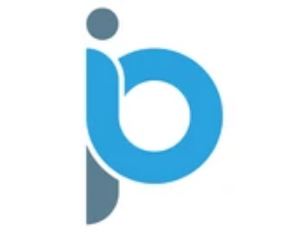Cox Challenges $1 Billion Piracy Verdict Over ‘Lies’ and ‘Serious Misconduct’
Three years ago, Internet provider Cox Communications lost its legal battle against a group of major record labels.
A Virginia jury held Cox liable for pirating subscribers because it failed to terminate accounts after repeated accusations, ordering the company to pay $1 billion in damages.
This landmark ruling is currently under appeal but Cox also discovered new information that could turn the initial verdict on its head. A few months ago the ISP stated that the music companies concealed important evidence and it now asks the Virginia federal court to review these findings.
Doubts About Piracy Evidence
The new information centers around the copyright infringement notices that were sent by MarkMonitor, the anti-piracy outfit that tracked files downloaded by BitTorrent pirates. To confirm that these files were indeed infringing, they were downloaded and verified by Audible Magic’s fingerprinting technology.
Cox has always had doubts about these notices. Before and during the trial, it argued that the underlying evidence was created after the fact. As such, it could be inadmissible. However, the music companies successfully denied that this was not the case.
During the jury trial, the music companies presented a hard drive that contained the files, suggesting that they were the original songs that were pirated between 2012 and 2014. This evidence was central to prove direct copyright infringement.
‘Lies and Serious Misconduct’
This eventually resulted in the $1 billion verdict. However, according to Cox, this verdict is based on lies and tainted by serious misconduct.
Relying on information that surfaced in a separate lawsuit the music companies filed against Charter, Cox is now convinced that the hard drive evidence was indeed recreated at a later date.
This information wasn’t disclosed at trial and Cox accuses the music companies of misrepresenting key evidence and misleading the jury. As such, it has asked the Virginia federal court for relief of judgment, with $1 billion on the line.
“As is now clear, evidence produced over Plaintiffs’ objection in their similar litigation against another ISP, Charter Communications, confirms that the unprecedented judgment in this case was based on evidence that was created years after the alleged infringement occurred,” Cox writes.
‘Created After the Fact’
Cox points out that the new revelations show that MarkMonitor compiled the hard drive of the allegedly “infringing” files in 2016, two years after the claim period. These files were allegedly downloaded and verified in 2016, after which the evidence was destroyed.
This information was concealed from Cox during the trial and the ISP argues that it would have crippled the record labels’ case.
“The materiality of these misrepresentations and the prejudice to Cox could not be clearer: they were intended to — and did — fend off well-founded challenges to the admissibility of key pieces of evidence, the exclusion of which would have crippled Plaintiffs’ case.
“The bottom line is that Plaintiffs lied. They lied to Cox; they lied to the Court; and they lied to the jury. And they rode those lies to a $1 billion judgment,” Cox adds.
Cox asks the federal court to indicate that it’s inclined to grant the motion for relief. If that’s the case, the ISP will ask the appeal court to send the case back to the district court so the issue can be resolved there.
At the time of writing the music companies have yet to respond to Cox’s allegations. They have roughly a month to do so and will likely contest the motion.
—
A copy of Cox’s motion for relief from the judgment is available here (pdf)
From: TF, for the latest news on copyright battles, piracy and more.
